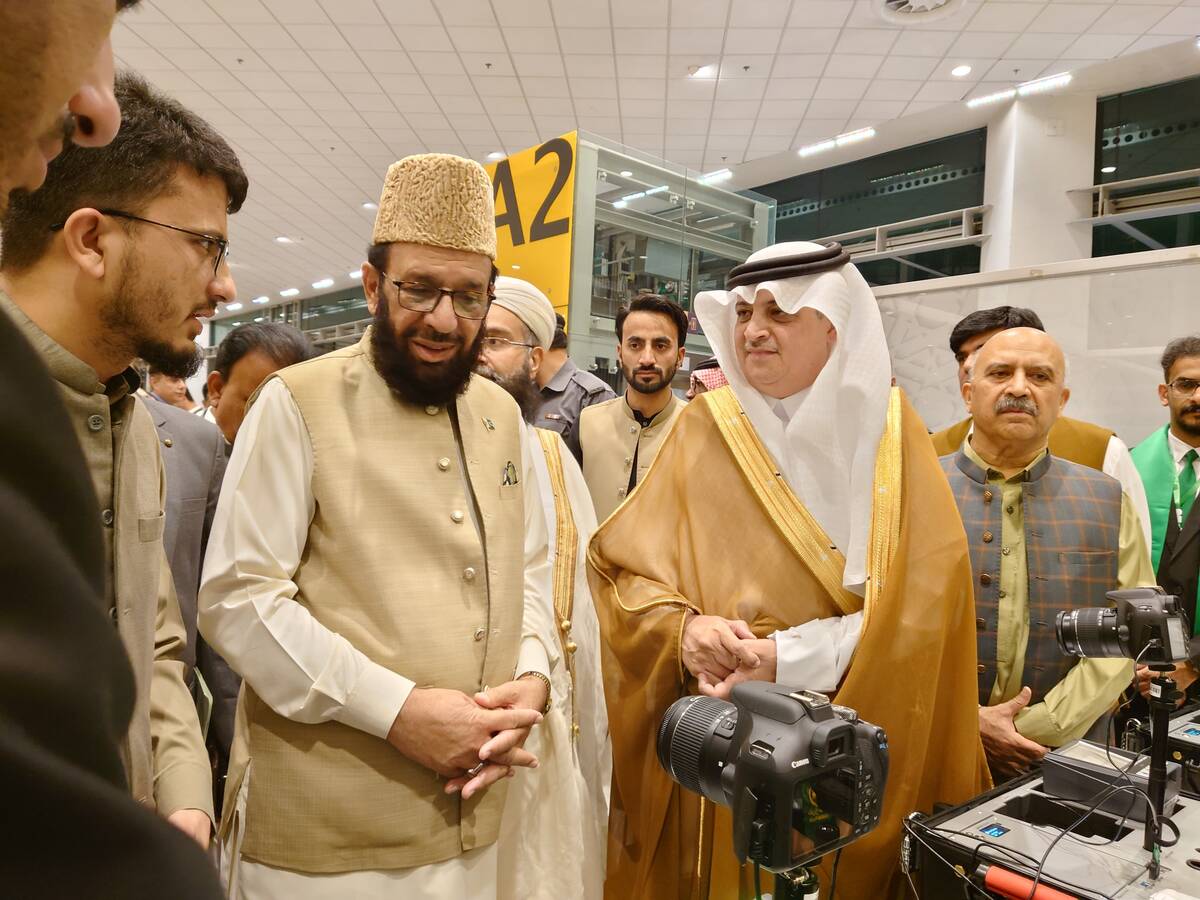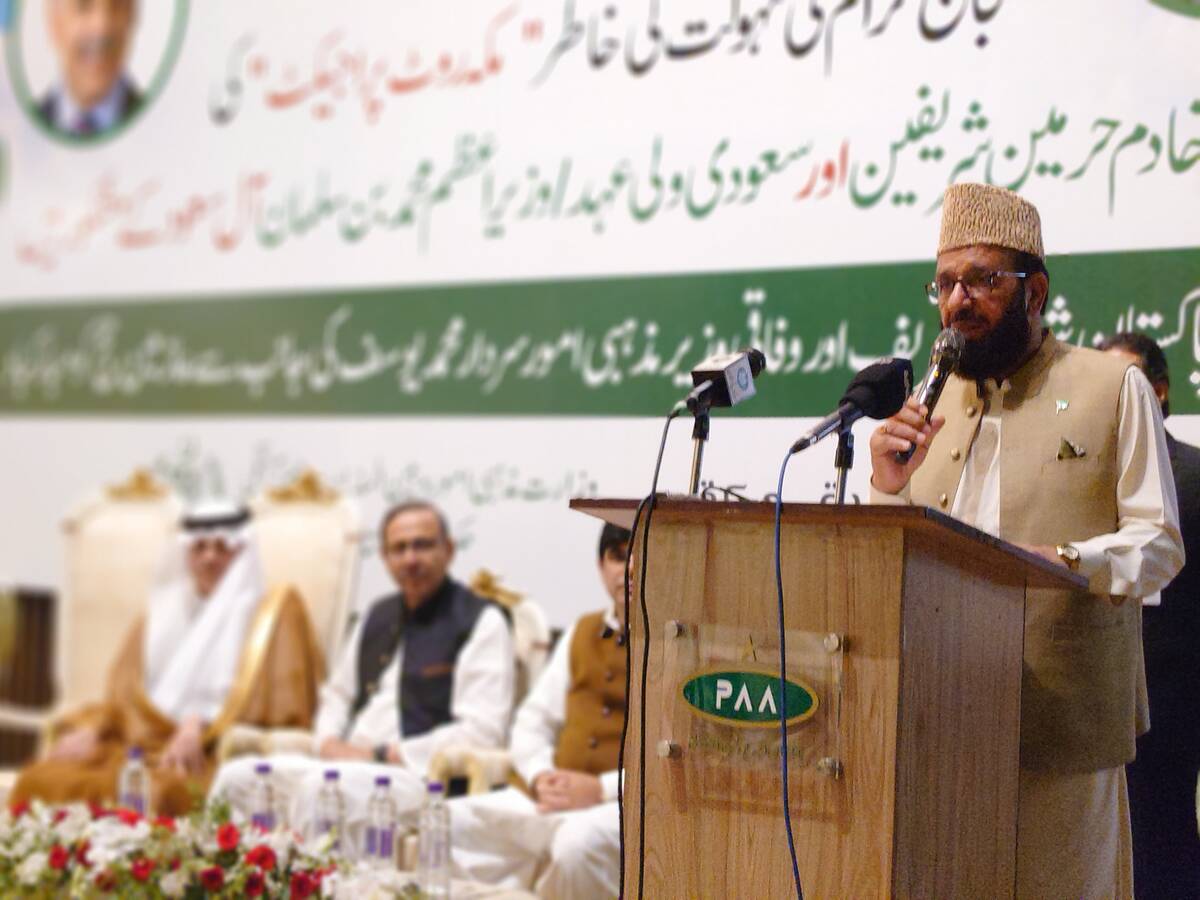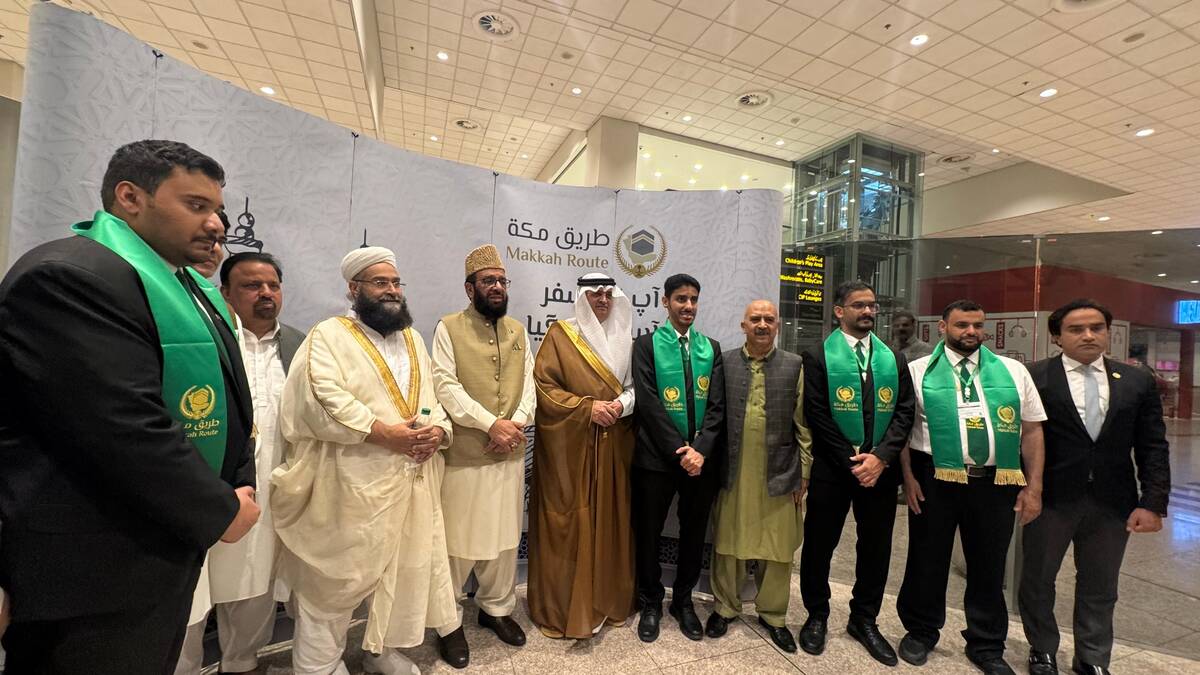KARACHI: At least four people were killed after a dust storm hit Pakistan’s seaside megacity of Karachi following a spell of scorching heat which forced residents indoors for the second consecutive day, a metrological official and police said on Tuesday.
The storm is likely to hit the city again tomorrow, Wednesday, the met official said, as heat persists despite light rainfall across the city.
“We had already predicted this storm on our yesterday’s weather advisory. The storm today lasted around thirty minutes and resulted in light rainfall,” Chief Meteorological Officer Sardar Sarfraz told Arab News.
The official said the likely cause of the storm could be the ongoing heatwave, as well as Cyclone Tauktae which is presently bearing down on India’s Rajasthan, some 550 kilometers east of Karachi. The intensity of the cyclone will decrease, he said.
A Karachi police statement said at least four people, including a woman and a nine year old child, were killed in storm-related incidents in different parts of the city, including because of buildings and electricity poles collapsing. A K-Electric statement had cautioned citizens not to touch electric poles and wires during the storm.
Earlier, hot weather and gusty winds forced residents of Pakistan’s seaside metropolis of Karachi to stay home for a second consecutive day despite the decision of the provincial government of Sindh to relax COVID-19 restrictions.
According to the latest weather report by the country’s meteorological department, the “very severe cyclonic storm” Tauktae intensified into an “extremely severe cyclone storm” and crossed the Indian state of Gujarat on Monday night.
However, it weakened into a “severe cyclonic storm” while moving over India’s Rajasthan desert.
According to the forecast, some thunderstorm and rain is expected in Pakistan Tharparkar and Umerkot districts during the next 12 hours but the country’s coastal areas are largely considered to not be under threat.
“Hot and dry weather will continue today in Karachi, Hyderabad, Shaheed Benzirabad, Badin and Mirpurkhas districts,” the meteorological department said in its report.
“Today will be another hot and dry day [for Karachi],” Chief Meteorological Officer told Arab News. “However, temperature will go down after sea breeze returns to the city by tomorrow afternoon.”
Sarfraz added that Karachi’s temperature was expected to go up to 42°C by 5 o’ clock in the evening.He said the city’s temperature was 33°C last night.
Previously, the residents of Karachi have experienced 34°C at nighttime in 2015.
The provincial administration of Sindh eased COVID-19 restrictions on Monday and allowed public transport on roads, though traffic remained thin across the city due to the warm weather.
Karachi’s residents also complained of power outages in social media posts.
“One of the hottest days of the year @KElectricPk has not been able to provide electricity for the past 12 hours in DHA Phase 6, wonder what will happen once the monsoon season starts,” one resident, Syed Sarfraz Ahmed, said on Twitter.
Another social media user took to the microblogging website to request authorities to end load-shedding for a few days.
“It’s a humble request to the decision-making authorities at KE. Please stop load-shedding in Karachi for a couple of days due to the massive hot weather change,” said Fawad Khan.
According to a K-Electric spokesperson who did not wish to be named, the utility company had received “technical complaints from some parts of DHA and Clifton” and was working to restore power supply in those areas.
In other neighborhoods, the source added, there were faults due to illegal connections.
“We are providing more than 3,000 megawatts of electricity to Karachi through our 1,900 feeders,” he told Arab News. “However, faults are reported in some areas of Gulshan-e-Iqbal, FB Area, Shah Faisal and North Karachi due to illegal connections.”

























